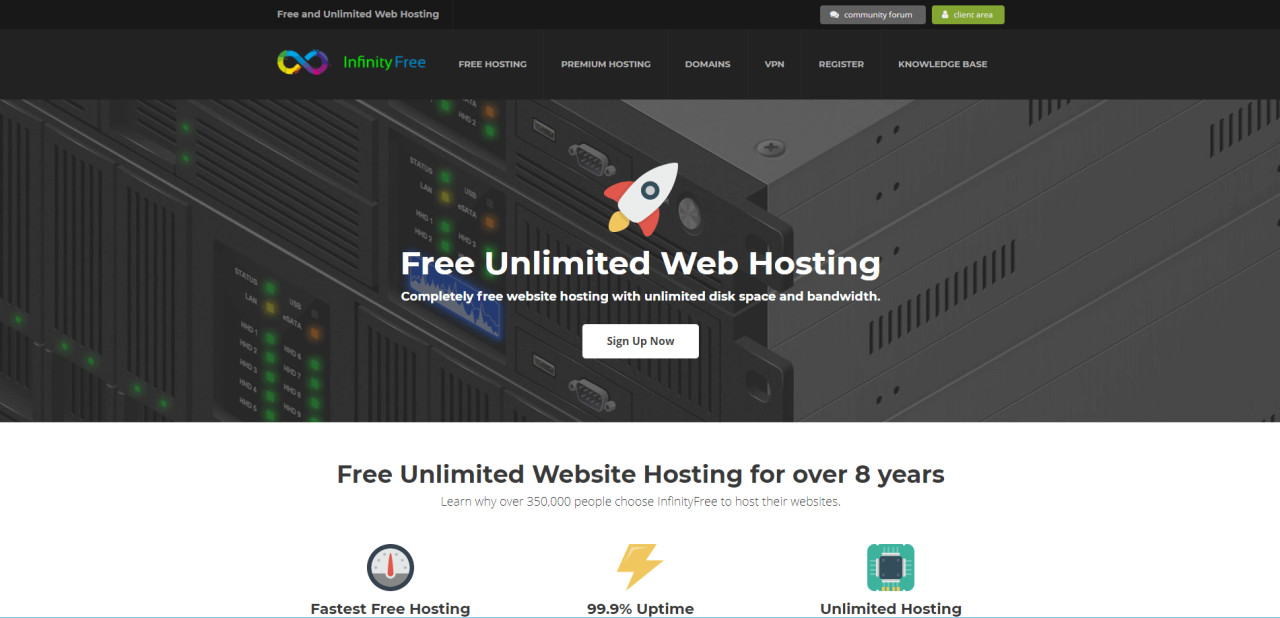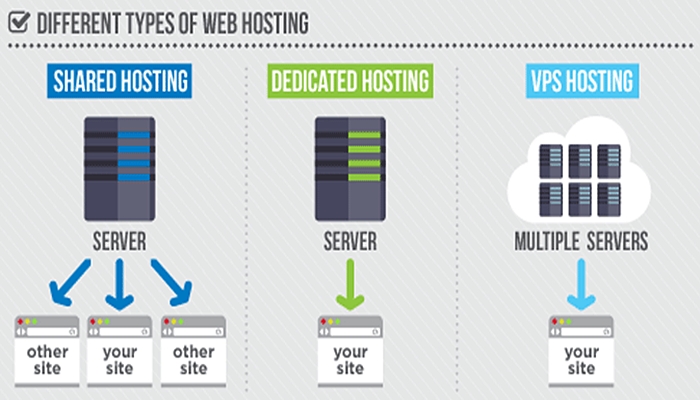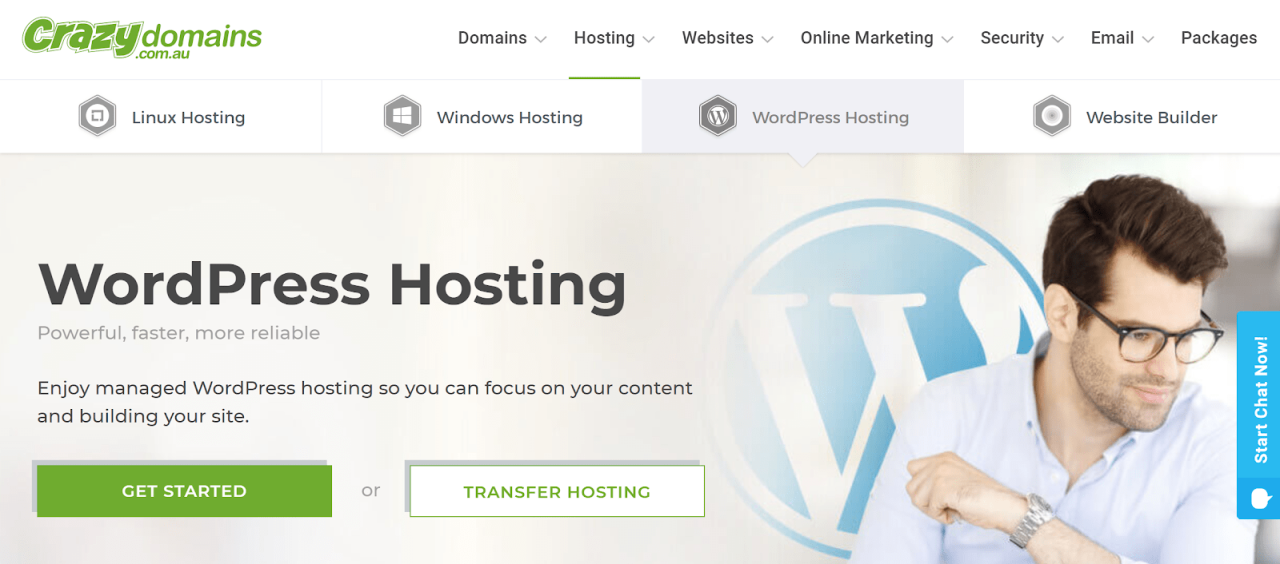Free web hosting services offer a tempting solution for anyone looking to launch a website without upfront costs. These services provide basic tools and resources, making it possible to build a simple website and share your content with the world. However, it’s crucial to understand the limitations that come with free hosting, as they often come with restrictions on storage, bandwidth, and features. This guide will delve into the world of free web hosting, exploring its benefits, drawbacks, and how to choose the right service for your specific needs.
Whether you’re starting a personal blog, creating a small business website, or showcasing your portfolio, understanding the nuances of free web hosting can help you make an informed decision. We’ll explore different types of free hosting, compare popular providers, and discuss essential features, security considerations, and alternatives. By the end, you’ll have a comprehensive understanding of free web hosting and be equipped to choose the best option for your online presence.
Understanding Free Web Hosting Services
Free web hosting services provide a platform to host websites without any upfront costs. These services typically offer basic features, including storage space, bandwidth, and email accounts.
Free web hosting services can be incredibly beneficial for individuals and small businesses looking to establish an online presence without significant financial investment. The accessibility and cost-effectiveness make it a popular choice for those starting their online journey.
Benefits of Free Web Hosting
Free web hosting services offer several advantages, primarily focused on affordability and ease of access.
- Cost-Effectiveness: Free web hosting eliminates the initial financial barrier to entry, allowing individuals and small businesses to build websites without upfront costs. This makes it an attractive option for those with limited budgets or starting their online ventures.
- Accessibility: Free web hosting services are readily available, requiring minimal technical expertise. This makes it easy for anyone to create and launch a website, regardless of their technical background.
Limitations of Free Web Hosting
While free web hosting offers advantages, it also comes with limitations that can impact website performance and functionality.
- Limited Storage Space: Free hosting plans typically offer restricted storage space, limiting the amount of content, files, and databases you can store on your website. This can be a constraint for websites with extensive content or multimedia files.
- Bandwidth Restrictions: Free web hosting plans often have limited bandwidth, which can affect website loading speed and performance. This can be a problem for websites with high traffic or those hosting multimedia content.
- Feature Restrictions: Free hosting services often restrict the features available, such as database support, scripting languages, and advanced security features. This can limit the functionality and customization options for your website.
- Advertising: Many free web hosting providers display advertisements on websites hosted on their platform. These advertisements can be distracting for visitors and negatively impact user experience.
- Performance Issues: Free hosting services often share resources with other users, which can lead to performance issues, such as slow loading times and website downtime. This can negatively impact user experience and website visibility.
Types of Free Web Hosting Services
Free web hosting services offer a valuable entry point for individuals and small businesses looking to establish an online presence without incurring upfront costs. These services come in various forms, each catering to different needs and offering a unique set of features and limitations.
Shared Hosting
Shared hosting is the most common type of free web hosting. In this model, multiple websites share the same server resources, including CPU, RAM, and storage space. This shared environment allows providers to offer free services by spreading the costs across a large user base.
Here are some popular free shared hosting providers:
- Freehostia: Freehostia offers basic shared hosting with limited storage and bandwidth. It’s ideal for simple websites with minimal traffic.
- 000Webhost: 000Webhost provides free shared hosting with more generous resources than Freehostia. It’s suitable for small businesses and personal websites with moderate traffic.
- AwardSpace: AwardSpace offers a free shared hosting plan with a decent amount of storage and bandwidth. It’s a good option for websites with moderate traffic and content.
Shared hosting offers several advantages, including:
- Low cost: Free shared hosting is an attractive option for budget-conscious users.
- Easy setup: Most free shared hosting providers offer user-friendly control panels and one-click installation for popular website applications.
However, shared hosting also has its drawbacks:
- Limited resources: Shared hosting environments can be resource-intensive, leading to slow performance and website downtime if other websites on the server experience high traffic.
- Security concerns: Sharing a server with other websites increases the risk of security breaches, as malicious activity on one website can potentially affect others.
- Limited features: Free shared hosting plans often have limited features, such as restricted storage space, bandwidth, and email accounts.
Free Web Builders
Free web builders provide a user-friendly platform to create websites without requiring technical expertise. They offer drag-and-drop interfaces, pre-designed templates, and built-in features like contact forms and image galleries.
Popular free web builders include:
- Wix: Wix offers a free plan with limited storage and bandwidth, but it provides a wide range of templates and features.
- Weebly: Weebly offers a free plan with basic features and limited storage and bandwidth. It’s a good option for simple websites with minimal content.
- WordPress.com: WordPress.com offers a free plan with limited features and storage. It’s suitable for personal blogs and small websites with limited content.
Free web builders are ideal for:
- Beginners: Their intuitive interfaces make website creation accessible to users with no prior coding experience.
- Simple websites: They are well-suited for creating small, content-focused websites, such as personal blogs, portfolios, or landing pages.
However, free web builders have some limitations:
- Limited customization: Free plans often restrict customization options, limiting design flexibility and branding opportunities.
- Branding restrictions: Free plans often display ads or branding elements from the web builder provider, affecting the website’s aesthetic and professional image.
- Limited features: Free plans typically have limited features, such as restricted storage space, bandwidth, and access to advanced functionalities.
Cloud-Based Free Web Hosting
Cloud-based free web hosting leverages the power of cloud computing to provide scalable and reliable hosting solutions. These services often offer more resources and features compared to traditional shared hosting.
Here are some examples of cloud-based free web hosting providers:
- Google Cloud Platform (GCP): GCP offers a free tier with a generous amount of compute resources and storage. It’s ideal for developers and businesses requiring scalable and reliable hosting.
- Amazon Web Services (AWS): AWS provides a free tier with a limited amount of compute resources and storage. It’s suitable for small projects and experimentation.
- Microsoft Azure: Azure offers a free tier with limited resources and features. It’s a good option for small businesses and individuals exploring cloud-based hosting.
Cloud-based free web hosting offers several advantages:
- Scalability: Cloud hosting allows websites to scale up or down as needed, ensuring smooth performance even during traffic spikes.
- Reliability: Cloud services are designed for high availability and redundancy, minimizing downtime and ensuring website accessibility.
- Cost-effectiveness: Cloud hosting can be cost-effective, especially for small businesses that need flexible resources and pay-as-you-go pricing models.
However, cloud-based free web hosting also has some drawbacks:
- Technical complexity: Cloud hosting can be more complex to manage compared to traditional shared hosting, requiring some technical knowledge.
- Limited resources: Free tiers often have limited resources, such as storage space and bandwidth, which can restrict website functionality.
- Potential cost escalation: Once the free tier limits are exceeded, users may need to upgrade to paid plans, potentially leading to increased costs.
Key Features of Free Web Hosting Services

Free web hosting services offer a range of features, though typically with limitations compared to paid plans. These services are attractive for individuals and small businesses seeking a cost-effective way to establish an online presence.
Essential Features
Free web hosting services often include essential features to enable basic website functionality.
- Website Builder Tools: Many free hosting providers offer drag-and-drop website builders that allow users to create simple websites without coding knowledge. These builders often provide pre-designed templates and customization options to personalize the website’s appearance.
- Email Accounts: Free hosting plans usually include a limited number of email accounts, allowing users to create professional email addresses associated with their domain name. This feature is essential for communication and establishing a professional online identity.
- Basic Security Measures: Free hosting services typically provide basic security measures such as firewalls and malware scanning to protect websites from common threats. However, these measures may be less robust compared to paid plans, which offer more comprehensive security features.
Availability of Advanced Features
While free hosting services provide essential features, advanced features are often limited or unavailable.
- SSL Certificates: Some free hosting providers may offer basic SSL certificates, which encrypt data transmitted between the website and visitors, enhancing security. However, the availability and quality of these certificates may vary significantly.
- Databases: Free hosting plans usually offer limited database storage and functionality. While basic databases may be sufficient for simple websites, more complex applications may require greater database capacity, which is often restricted in free plans.
- Scripting Languages: Free hosting services may support common scripting languages like PHP and Python, but their support may be limited, and users might encounter restrictions on resource usage or specific functionalities.
Limitations of Free Web Hosting Services
Free web hosting services are attractive due to their affordability, but they come with inherent limitations that can affect website performance and functionality.
- Restricted Bandwidth: Free hosting plans often impose limits on bandwidth, the amount of data transferred between the website and visitors. This can lead to slow loading times and potential website outages if the bandwidth limit is exceeded.
- Limited Storage Space: Free hosting plans typically offer limited storage space, which can restrict the size and number of files that can be uploaded to the website. This can be a challenge for websites with large media files or extensive content.
- Potential Performance Issues: Free hosting services often share resources with multiple websites on the same server, leading to potential performance issues. This can result in slower loading times, especially during peak hours when server resources are heavily utilized.
Choosing the Right Free Web Hosting Service
Selecting the right free web hosting service is crucial for establishing a successful online presence without incurring immediate costs. A well-chosen free hosting provider can offer a platform to test your website ideas, build your portfolio, or even host a simple personal website.
Factors to Consider
When choosing a free web hosting service, several key factors must be considered to ensure your website functions effectively and meets your needs. These factors include your website’s purpose, anticipated traffic volume, and the specific features you require.
- Website Purpose: Determine the intended use of your website. Is it a personal blog, a simple portfolio showcasing your work, a business website, or a community forum? The purpose will guide your choice of features and resources.
- Traffic Expectations: Consider how much traffic you anticipate your website receiving. Free hosting services typically have limited bandwidth and storage, which can impact website performance if you experience high traffic volumes.
- Desired Features: Identify the essential features for your website, such as a domain name, email accounts, website building tools, database support, and security features. While free hosting services offer basic features, their availability and quality can vary significantly.
Evaluating Reliability, Performance, and Customer Support
Evaluating the reliability, performance, and customer support of potential free hosting providers is essential for a positive user experience.
- Reliability: Research the provider’s uptime history and server stability. A reliable hosting service ensures your website is accessible to visitors consistently. Look for user reviews and independent assessments of the provider’s uptime and performance.
- Performance: Consider the provider’s server speed and loading times. Slow loading times can deter visitors and negatively impact your website’s ranking. Check user reviews and independent performance benchmarks to gauge the provider’s speed and responsiveness.
- Customer Support: Evaluate the provider’s customer support channels, response times, and availability. Prompt and helpful support is essential for resolving technical issues and ensuring your website runs smoothly. Consider the provider’s support options, such as live chat, email, or phone support, and the availability of comprehensive documentation and tutorials.
Comparing Popular Free Web Hosting Providers
A comparison table can help you assess the key features, pricing, and user reviews of popular free web hosting providers. This table allows you to make an informed decision based on your specific requirements and preferences.
| Provider | Key Features | Pricing | User Reviews |
|---|---|---|---|
| Freehostia | Free domain name, unlimited bandwidth, email accounts, website builder, database support | Free | 4.5/5 stars |
| 000Webhost | Free domain name, unlimited bandwidth, email accounts, website builder, database support, cPanel | Free | 4/5 stars |
| ByetHost | Free domain name, unlimited bandwidth, email accounts, website builder, database support, cPanel | Free | 3.5/5 stars |
| AwardSpace | Free domain name, unlimited bandwidth, email accounts, website builder, database support, cPanel | Free | 3/5 stars |
Free Web Hosting for Specific Use Cases
Free web hosting services can be a viable option for certain types of websites, offering a cost-effective way to get online. However, it’s crucial to understand the limitations and potential challenges associated with free hosting before deciding if it’s the right choice for your specific needs.
Personal Blogs
Free web hosting services are generally well-suited for personal blogs. Blogs often have minimal resource requirements, and free hosting providers typically offer sufficient bandwidth and storage for basic blogging activities.
Free hosting can be a great way to start a blog without any upfront costs, allowing you to experiment with content creation and gain an audience. Many popular blogging platforms, such as WordPress, offer free hosting options, making it easy to get started.
Small Business Websites
While free web hosting can be tempting for small businesses due to its low cost, it’s often not the best option. Small businesses often require more resources, such as increased storage and bandwidth, to handle growing traffic and website functionality.
Free hosting services usually come with limitations, such as restricted storage space, limited bandwidth, and restricted features, which can hinder the growth and functionality of a small business website.
For example, a small business selling products online might need more storage space for product images and descriptions, and increased bandwidth to handle customer traffic and orders. Free hosting may not be able to accommodate these needs.
Online Portfolios
Free web hosting services can be a suitable option for online portfolios, especially for individuals starting out in their careers or for students showcasing their work. Online portfolios typically require less storage and bandwidth compared to e-commerce websites or blogs with high traffic.
Free hosting can be a good starting point for creating a basic portfolio website. However, as you build your career and gain more experience, you may need to upgrade to a paid hosting service to accommodate more content and features.
For instance, a graphic designer might need more storage space for high-resolution images or videos in their portfolio. A paid hosting service would provide the necessary resources for this.
Security Considerations with Free Web Hosting
Free web hosting services offer a convenient and affordable way to get your website online. However, they often come with inherent security risks that you need to be aware of. Understanding these risks and implementing appropriate security measures is crucial for protecting your website and data.
Common Security Threats
Free web hosting services are often targeted by cybercriminals due to their perceived vulnerability. Here are some common security threats associated with free hosting:
- Malware Attacks: Free hosting platforms can be vulnerable to malware infections. Hackers can exploit vulnerabilities in the hosting environment or website code to inject malicious scripts, leading to data theft, website defacement, or redirection to phishing websites.
- Data Breaches: Free hosting providers may not have the same level of security infrastructure as paid hosting services. This can make your data more susceptible to unauthorized access or theft.
- Website Vulnerabilities: Free hosting platforms may not offer regular security updates or patches, leaving your website vulnerable to known exploits. Outdated software can create security loopholes that hackers can exploit.
Enhancing Website Security
While free hosting comes with inherent risks, you can take steps to enhance your website security:
- Strong Passwords: Use strong and unique passwords for your website and hosting account. Avoid using common passwords or phrases and consider using a password manager to generate and store complex passwords securely.
- Two-Factor Authentication: Enable two-factor authentication (2FA) for your hosting account whenever possible. This adds an extra layer of security by requiring you to enter a code sent to your phone or email in addition to your password.
- Regular Software Updates: Keep your website software, including the content management system (CMS), plugins, and themes, updated to the latest versions. Updates often include security patches that fix vulnerabilities and improve overall security.
- Website Security Measures: Implement security measures such as a web application firewall (WAF) and a secure socket layer (SSL) certificate. A WAF helps protect your website from common attacks, while an SSL certificate encrypts communication between your website and visitors, ensuring data privacy.
- Backup Your Website: Regularly back up your website data to prevent data loss in case of a security breach or accidental deletion. Store backups in a secure location, ideally off-site.
Security Measures Offered by Free Hosting Providers
Free hosting providers typically offer varying levels of security features. Some common measures include:
- Antivirus Software: Some providers offer basic antivirus protection to scan your website for malware infections.
- Firewall Protection: Firewalls help prevent unauthorized access to your website and protect it from malicious traffic.
- Security Monitoring: Some providers offer security monitoring services to detect suspicious activity and alert you to potential threats.
- Security Patches: Free hosting providers may provide security patches for their platform and software, but the frequency and effectiveness of these updates can vary significantly.
Comparing Security Measures
When choosing a free hosting provider, it’s essential to compare their security measures and features. Look for providers that offer:
- Regular Security Updates: Ensure the provider regularly updates their platform and software to address vulnerabilities.
- Comprehensive Security Features: Look for providers that offer a range of security features, such as firewalls, antivirus software, and security monitoring.
- Strong Security Policies: Check the provider’s security policies and procedures to understand how they protect your data and website.
- Customer Support: Choose a provider that offers reliable customer support in case of security incidents.
Alternatives to Free Web Hosting
While free web hosting services can be a good starting point, they often come with limitations that can hinder your website’s growth and performance. For serious websites and online businesses, paid web hosting is often the better choice.
Paid Web Hosting Services: Benefits and Drawbacks
Paid web hosting services offer a range of advantages over their free counterparts. They provide more resources, features, and reliability, making them suitable for websites with higher traffic and more complex requirements.
- Increased Resources: Paid hosting plans typically provide more storage space, bandwidth, and processing power, allowing your website to handle higher traffic volumes and load faster. This is crucial for websites that experience significant user activity or require resource-intensive applications.
- Enhanced Performance: Paid hosting services often utilize faster servers and optimized infrastructure, resulting in improved website loading times and better user experiences. This is especially important for e-commerce websites and platforms where speed is critical for conversions and customer satisfaction.
- Reliable Uptime: Paid hosting providers typically offer higher uptime guarantees, ensuring your website is accessible to visitors 24/7. This is essential for businesses that rely on their websites for revenue or customer interactions.
- Advanced Features: Paid hosting plans often include features like email accounts, databases, website security tools, and advanced website management tools that are not typically available with free hosting. These features can significantly enhance your website’s functionality and security.
- Dedicated Support: Paid hosting providers offer dedicated customer support, providing assistance with technical issues, website configuration, and other technical needs. This is a significant advantage over free hosting, which often has limited or non-existent support.
However, paid hosting services also come with a cost, which can be a drawback for individuals and small businesses with limited budgets.
Affordable Paid Hosting Options
Despite the cost, there are several affordable paid hosting options available for small businesses and individuals. These options offer a balance between cost-effectiveness and essential features.
- Shared Hosting: This is the most affordable type of paid hosting, where multiple websites share the same server resources. While resources are shared, shared hosting plans offer more storage, bandwidth, and features than free hosting. Prices typically range from $3 to $10 per month.
- VPS Hosting: Virtual Private Server (VPS) hosting provides a dedicated portion of a physical server, offering more resources and control than shared hosting. VPS hosting is suitable for websites with moderate traffic and specific performance requirements. Prices typically range from $10 to $50 per month.
- Cloud Hosting: Cloud hosting distributes website resources across a network of servers, providing scalability and flexibility. Cloud hosting is a good option for websites with fluctuating traffic and high performance demands. Prices vary depending on the provider and resource requirements.
When to Upgrade from Free Web Hosting
It’s advisable to upgrade from free web hosting to a paid option when your website experiences significant growth, traffic volume, or performance needs.
- Increased Traffic: If your website is experiencing a surge in visitors, free hosting may not be able to handle the load, resulting in slow loading times and potential downtime. Upgrading to a paid hosting plan with more resources can ensure a smooth user experience.
- Performance Issues: If your website is experiencing slow loading times, frequent errors, or other performance issues, it may be time to upgrade to a paid hosting plan. Paid hosting offers better infrastructure and resources that can improve your website’s performance.
- Security Concerns: Free hosting providers often have limited security features, making your website vulnerable to attacks. Paid hosting plans typically offer enhanced security measures, such as firewalls, malware scanning, and SSL certificates, to protect your website and data.
- Website Growth: As your website grows, you may need more advanced features and functionality, such as email accounts, databases, and website management tools. Paid hosting plans often provide these features, enabling you to expand your website’s capabilities.
Future Trends in Free Web Hosting

The realm of free web hosting is constantly evolving, driven by advancements in technology and changing user needs. New trends are emerging, offering exciting possibilities for both website owners and hosting providers.
The Rise of AI-Powered Optimization, Free web hosting services
Artificial intelligence (AI) and machine learning (ML) are revolutionizing the way websites are built and managed. These technologies can analyze website data, identify areas for improvement, and automatically optimize websites for better performance and user experience. This has significant implications for free web hosting services. AI-powered optimization tools can be integrated into free hosting platforms, allowing even users with limited technical expertise to improve their websites.
Impact of Emerging Technologies on Free Hosting
New technologies, such as serverless computing, edge computing, and blockchain, are also influencing the future of free web hosting. Serverless computing allows developers to run code without managing servers, reducing costs and complexity. Edge computing brings computation and data storage closer to users, improving performance and reducing latency. Blockchain technology can enhance security and transparency in the hosting ecosystem. These technologies have the potential to make free hosting more accessible, scalable, and secure.
Predictions for the Future of Free Web Hosting
Free web hosting is likely to become more sophisticated and feature-rich in the future. AI-powered tools will become increasingly common, providing users with personalized insights and automated website improvements. Free hosting providers may offer more storage space, bandwidth, and advanced features to compete for users. The line between free and paid hosting may blur, with free plans offering a more comprehensive set of features.
Conclusion

The world of free web hosting services presents a diverse landscape with options catering to various needs and budgets. While tempting, free web hosting services often come with limitations that might not be suitable for all website projects. It’s crucial to weigh the pros and cons carefully before making a decision.
Choosing the Right Free Web Hosting Service
Selecting the best free web hosting service requires a clear understanding of your website’s purpose, traffic expectations, and resource requirements. Here are some key factors to consider:
- Website Purpose: Determine if the free hosting service aligns with your website’s goals. For simple personal blogs or portfolios, free hosting might be sufficient. However, for e-commerce sites or high-traffic websites, paid hosting is generally recommended.
- Traffic Expectations: Free hosting often comes with limited bandwidth and storage. If you anticipate significant traffic, a paid plan is a more reliable choice.
- Resource Requirements: Free hosting typically offers limited resources, such as CPU, memory, and database capacity. Websites with complex functionalities or demanding applications may require a paid hosting plan.
- Features: Compare the features offered by different free hosting providers. Some might provide essential features like email accounts, while others might offer more advanced options like website builders or security tools.
- Support: Evaluate the level of support provided by the free hosting service. While free services may offer limited support, paid plans usually include 24/7 customer service and technical assistance.
Last Recap
In the dynamic world of web hosting, free services offer an accessible entry point for individuals and small businesses. While they provide a cost-effective way to get started, it’s essential to acknowledge their limitations and weigh them against your specific needs. As your website grows and your requirements evolve, you may find that paid hosting offers greater flexibility, performance, and reliability. Ultimately, the choice between free and paid hosting depends on your website’s purpose, traffic expectations, and long-term goals. By carefully considering these factors, you can select the web hosting solution that best supports your online success.
Free web hosting services can offer a great starting point for your website, but if you need more control and flexibility, you might consider setting up your own server environment. A popular choice for this is Apache Tomcat 9 , a robust Java servlet container that allows you to deploy and manage web applications with ease.
While it requires more technical knowledge, the benefits of a self-hosted solution can outweigh the initial learning curve, especially for projects with specific requirements or a large user base.




